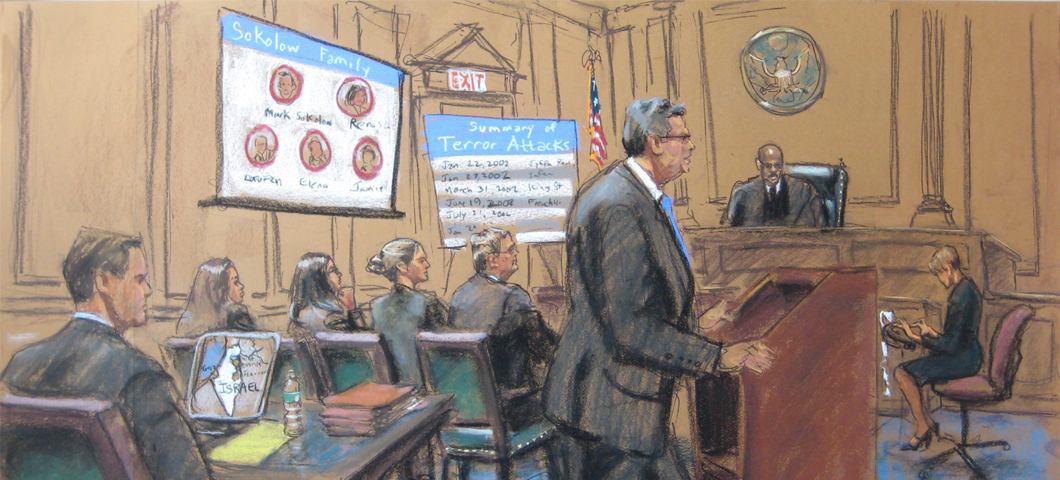Why Trial Presentations Are Critical for Effective Cross-Examination in Court
Why Trial Presentations Are Critical for Effective Cross-Examination in Court
Blog Article
The Power of Visuals in Trial Presentations for a Winning Debate
The integration of visuals in trial discussions has actually become a crucial consider successfully connecting intricate arguments to jurors. By using numerous forms of visual help-- be it diagrams, photographs, or animations-- attorneys can enhance understanding and retention, ultimately shaping the court's perception of the case. This method not only makes clear detailed narratives yet additionally establishes a psychological vibration that can affect decision-making. As we check out the subtleties of this strategy, it becomes important to consider just how details kinds of visuals can make a substantial difference in trial results. What useful techniques might attorneys employ to optimize this potential?
Significance of Visuals in Tests
In several lawful settings, visuals play a vital duty in enhancing the efficiency of trial discussions. The combination of aesthetic aspects can dramatically affect jurors' understanding and retention of intricate information, consequently shaping their understandings and choices. Visuals, such as charts, diagrams, and photos, can simplify complex stories, making them extra obtainable and compelling.
Additionally, the human brain processes visual details extra efficiently than text, which underscores the significance of integrating visuals right into legal debates. By equating dense legal concepts into visual styles, attorneys can promote clearer communication, ensuring that essential points are not forgotten throughout tests.
Additionally, visuals serve to engage jurors on a psychological degree, promoting a connection to the instance that words alone might stop working to achieve. The strategic use visuals can stimulate compassion, motivating jurors to think about the human aspects of the situation.
Inevitably, the importance of visuals in tests lies in their capacity to boost clarity, enhance juror interaction, and strengthen the narrative being presented. This potent combination is important for crafting persuasive debates that resonate with jurors and influence the outcome of legal procedures.
Kinds Of Visuals to Utilize
Efficient trial presentations can considerably take advantage of a range of visual tools that deal with various elements of the case. trial presentations. Making use of diagrams and charts can properly break down complex information, making it extra absorbable for jurors. Flowcharts can illustrate the series of events, while bar charts may succinctly contrast appropriate information factors.

Animations and simulations can likewise play an important function, especially in situations including technological information or elaborate circumstances. These visuals can dynamically stand for processes or actions, offering quality and interaction that static images might not attain.
Additionally, infographics integrate text and visuals to sum up essential details properly. They can offer timelines, data, and substantial instance factors in a visually appealing fashion, making it much easier for jurors to follow the debate.
Enhancing Understanding and Retention

Enhancing understanding and retention during test presentations is vital for ensuring that jurors realize the vital components of a case. Aesthetic help work as powerful tools look at this now in this regard, converting complicated information into easily digestible styles. By making use of graphes, representations, and infographics, attorneys can streamline detailed information and highlight bottom lines that might or else be overlooked.
Studies have actually revealed that individuals preserve information dramatically better when it exists visually. This is especially essential in a trial setup, where jurors might be overwhelmed by the volume of proof and statement. By strategically incorporating visuals, attorneys can direct jurors' interest to the most critical facets of the situation, reinforcing their understanding and memory of the product provided.

Developing Involving Discussions
Fascinating jurors' focus throughout test discussions is crucial for conveying an engaging story. Involving discussions take advantage of visual elements to create a memorable experience that reverberates with jurors. The calculated usage of graphics, computer animations, and video clips can elucidate intricate info, making it more easily accessible and relatable.

Furthermore, including storytelling methods can boost Go Here interaction. Providing go to this website proof in a sensible sequence that develops sob story allows jurors to get in touch with the material on a personal level. Numerous discussion layouts, such as incorporating brief video or interactive components, can additionally suffer interest and interest throughout the test.
Ultimately, an engaging discussion cultivates an extra extensive understanding of the case, enabling jurors to much better appreciate the debates existing and causing a more beneficial end result.
Situation Studies and Success Stories
Numerous situation studies highlight the considerable effect of visuals in trial discussions, showing their capacity to affect juror perceptions and ultimately the results of situations. A remarkable case including an individual injury insurance claim illustrated just how the usage of a 3D computer animation of the mishap scene clarified complicated information. Jurors reported really feeling more educated and compassionate, significantly guiding their choice for the complainant.
In an additional circumstances, a company litigation instance used infographics to present financial information and timelines, making detailed information easily accessible. The graph made it possible for jurors to understand the subtleties of the case better than spoken explanations alone. trial presentations. Because of this, the jury returned a judgment that surpassed the customer's assumptions
The compelling visuals not just aided in developing question but additionally reverberated emotionally with jurors, leading to a pardon. These success tales emphasize the requirement of integrating visuals into test discussions, as they boost understanding, retention, and inevitably, the influential power of lawful debates.
Conclusion
Finally, the critical unification of visuals in test discussions significantly improves jurors' understanding and retention of intricate information. By using numerous sorts of visuals, lawyers can effectively make clear bottom lines and foster emotional connections with the target market. Involving presentations, sustained by compelling case studies, demonstrate the extensive effect that visuals can have on influential communication. Eventually, the power of visuals offers as an essential component in achieving favorable test outcomes.
Report this page